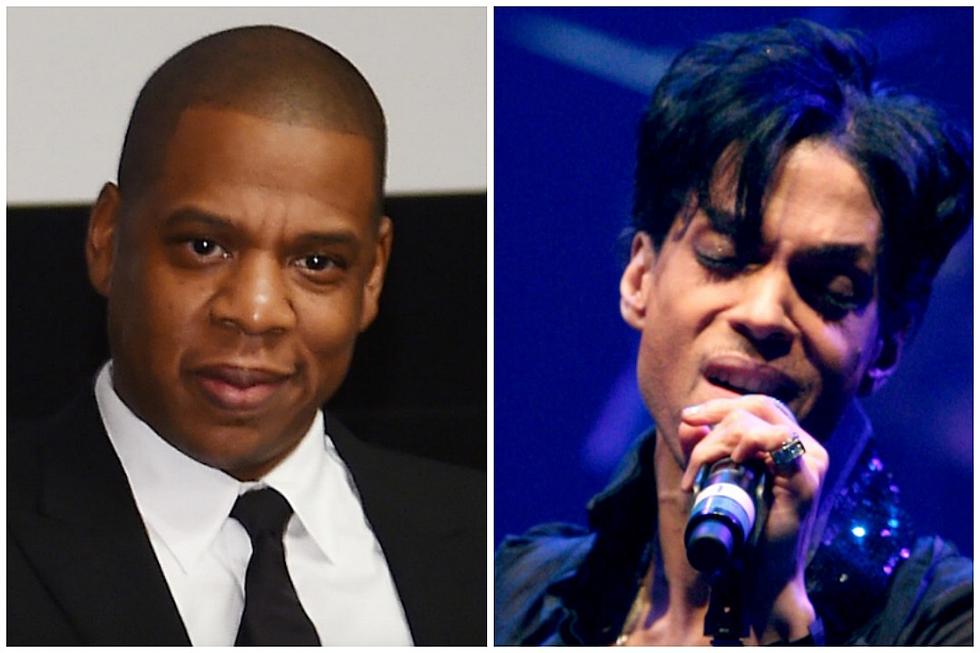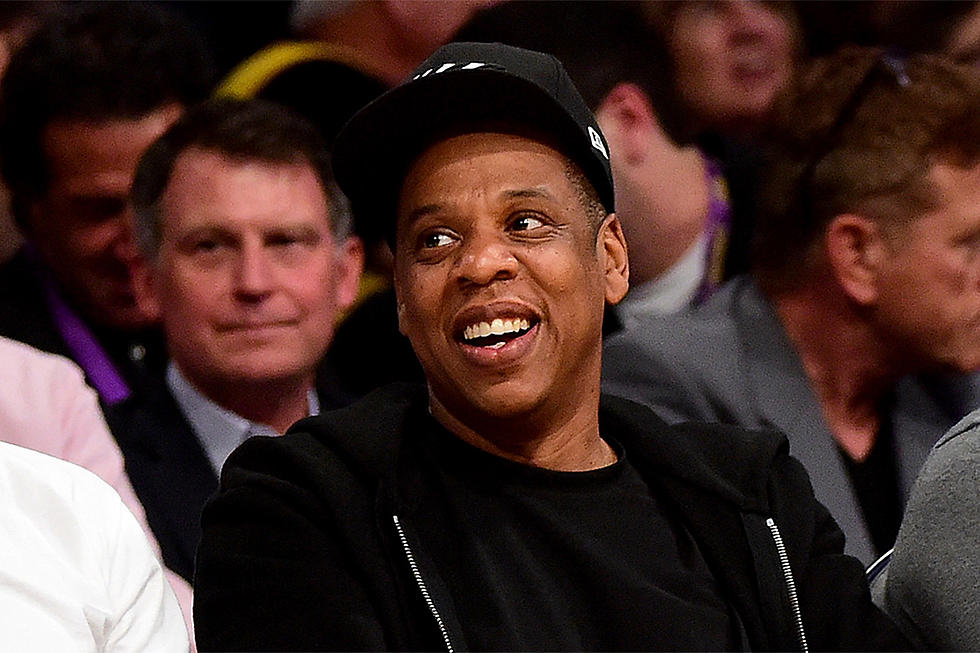
9/11’s Impact on Hip-Hop Is More Serious Than You Think
Fourteen years ago, you remember where you were, who you were with and what you were doing when America was under attack on Sept. 11, 2001. While you were settling into school or hitting that 9-to-5, a few of the country's biggest historical landmarks were being destroyed in an act of terrorism, including New York City's World Trade Center and the Pentagon in Arlington County, Va. The tragedy shook up the entire country, but the area that was seemingly affected the most was the East Coast.
A state of shock settled over the U.S., with people scrambling for answers as to why and how something so devastating could happen in the "land of the free." Details of these events would unfold in time, but the one thing many people took solace in was the fact that we still had a day of highly anticipated album releases to look forward to. After all, music is good for the soul.
Before the attacks on the World Trade Center, the Pentagon and the crash of United Airlines Flight 93, the most significant thing about Sept. 11 was the murderer's row of new albums by some of the biggest names in music across all genres. Among the artists dropping projects that day were rockers Nickleback, Bob Dylan and Slayer, as well as R&B heavyweights Mariah Carey and Babyface, making for a music fiend's dream of LPs to choose from.
While those names alone would make for a memorable release day, when you throw in albums from rap titan Jay Z (The Blueprint) and a buzzworthy rookie by the name of Fabolous (Ghetto Fabolous), 9/11 would've went down as one of the biggest dates of the year in music, but the tragic loss clouded much of the artistic celebration. The fact that hip-hop led the charge with those two landmark releases is telling of the influence that rap had on pop culture and a testament to its dominance as the genre of choice for the youth and young adults across America.
Sept. 11, 2001 was not only a game-changer in terms of politics affairs -- domestic and abroad -- but also in the world of hip-hop. Hov's The Blueprint debuted at No.1 on the Billboard 200, giving the rapper his fourth consecutive No. 1 debut and all but solidifying his standing as the front-runner for the title of King of New York. And he didn't just accomplish this musically, but through his daily actions as well by donating $100,000 in concert proceeds to World Trade Center victims.
Being a native of Brooklyn, N.Y., it's safe to say that 9/11 hit a little close to home for the Roc-A-Fella Records boss. The MC never let people forget the lives lost that day since he would remind fans of the tragic event numerous times throughout his career. From his lyrics like "I put dollars on mine, ask Columbine / When the Twin Towers dropped, I was the first in line / Donating proceeds from every ticket sold / When I was out on the road, that's how you judge Hov, no?" on the title track to his seventh studio album, The Blueprint 2) to his appearance at Paul McCartney's Concert for New York City charity show, he made sure the impact of 9/11 was a topic of conversation if you were a fan.
9/11 may have been the first signs of the coronation of Jay Z as the ruler of rap and stamped him as one of the most philanthropic artists in hip-hop, but it was also the day when another native of Brooklyn would step up to the plate in a big way.
Despite having more than a few people whispering about his hit single, "Can't Deny It" featuring the late Nate Dogg, as well as a standout appearance on Lil' Mo's "Superwoman" to his credit, Fabolous dropping an album on a day of unforeseen disaster was a gamble. The severity of the country's tragedy makes the fact his debut LP, Ghetto Fabolous, was able to land in the top five of the Billboard 200 even more impressive.
The rapper was able to get ahead of established acts like Bob Dylan, Mariah Carey, Babyface and Slayer, which gave him one of the more underrated rap entrances onto the mainstream radar given the circumstances. This feat could also be seen as an early indicator of Fab's staying power as a bankable artist as well. It's likely the 143,180 copies sold in the first week of release had something to do with the fact that the hip-hop community wanted to escape the reality of 9/11 and get lost in Fab's music.
The terror that took place also seeped into rap music in the years following the attacks, with everyone from socially conscious rappers to more flashy rappers weighing in and expressing their feeling on the attacks. One of the more outspoken artists in regards to 9/11 is Immortal Technique, who has been far from shy about incorporating his theories of what caused the attacks in his rhymes. Take for instance his 2003 song "The Cause of Death," a scathing salvo aimed at the Bush administration as a whole.
Immortal Technique pulls no punches, rhyming, "And I know a lot of people find it hard to swallow this / Because subliminal bigotry makes you hate my politics / But you act like America wouldn't destroy two buildings / In a country that was sponsoring bombs dropped on our children / I was watching the Towers, and though I wasn't the closest / I saw them crumble to the Earth like they was full of explosive." The effort is an attempt to enlighten people of the possible conspiracies that may have played a part in 9/11.
The day served as the catalyst for many changes in hip-hop on a number of levels. It opened the door for rap rivals such as Jay Z and Cam'ron to put aside their differences in the name of unity for their classic 2002 collaboration, "Welcome to New York City," which was regarded as a celebratory record aimed at lifting the spirits of a city that was crumbling. When Juelz Santana spits, "It's the home of 9/11, the place of the lost towers / We still bangin', we never lost power," the impact and emotion of that sentiment is fully felt in the core of any fan listening.
It also helped facilitate the rise of rappers of Middle Eastern descent to rap about their trials and tribulations of living in America under intense scrutiny. One of the better examples of this movement is Das Racist member Heems, who never shies away from his heritage or the effect that 9/11 had on his life and music.
Das Racist's visual for their song "Michael Jackson" depicts the silhouette of a jet headed toward two skyscrapers, a pair of explosions and a lit bomb, all symbols of terrorism post-9/11. But one of the most poignant depictions of his experience comes in the form of "The Patriot Act," off of his Eat, Pray, Thug project. "And we scrubbed words like bomb from our vocabulary / And airports changed to us forever / Where another blue uniform came to represent oppression or undressing / And another blue uniform came to represent stops and frisks, depressing / And our parents began to fear for our lives whenever we walked out the door / Because they read the news, and another cab driver was beaten to death," he raps.
Heems' plight may be disturbing, but speaks to the essence of hip-hop. It's made by the people for the people to share their experiences with the world. And while we're nearly a decade-and-a-half removed from 9/11, its impact on hip-hop culture is indelible. This is evident in the way we remember that fateful day with the help of social media platforms like Twitter, Facebook and Instagram.
The hashtag is a powerful tool when it comes to sharing information or raising awareness on a topic or cause and has been utilized by everyone from the average Joe to the biggest superstars on the planet. Just last year, the anniversary of 9/11 was a relevant topic, with various members of the hip-hop community like Lil Wayne, N.O.R.E. and Russell Simmons, among others, chiming in with their personal memories of 9/11 and urging the fans to never forget the lives lost.
These public displays of empathy and social responsibility are refreshing and a sign of the times we're in as a culture. In 2001, the music industry was in a very different place compared to what we hear and see in 2015. While many rappers don't ever get the chance to experience a 14-year career, a solid amount have made it their duty to keep the stark reality of 9/11 alive through their music and their actions regardless of their popularity. Whether it's using their lyrics to address terrorism head on or demonstrate compassion for the deceased, deading violence or uniting for movements that promote social justice, the hip-hop community proves that 9/11 may be behind us, but it's hardly forgotten.
See Artists We Lost in 2015 (So Far)
More From Antenna Mag



![Jay Z Calls the War on Drugs an ‘Epic Fail’ in New Provocative Animated Video [WATCH]](http://townsquare.media/site/801/files/2016/09/Jay-Z.jpg?w=980&q=75)

![Tim Westwood Shares Rare Jay Z Freestyle From ‘Hard Knock Life’ Days [VIDEO]](http://townsquare.media/site/625/files/2015/11/Tim-Westwood-Jay-Z.jpg?w=980&q=75)




